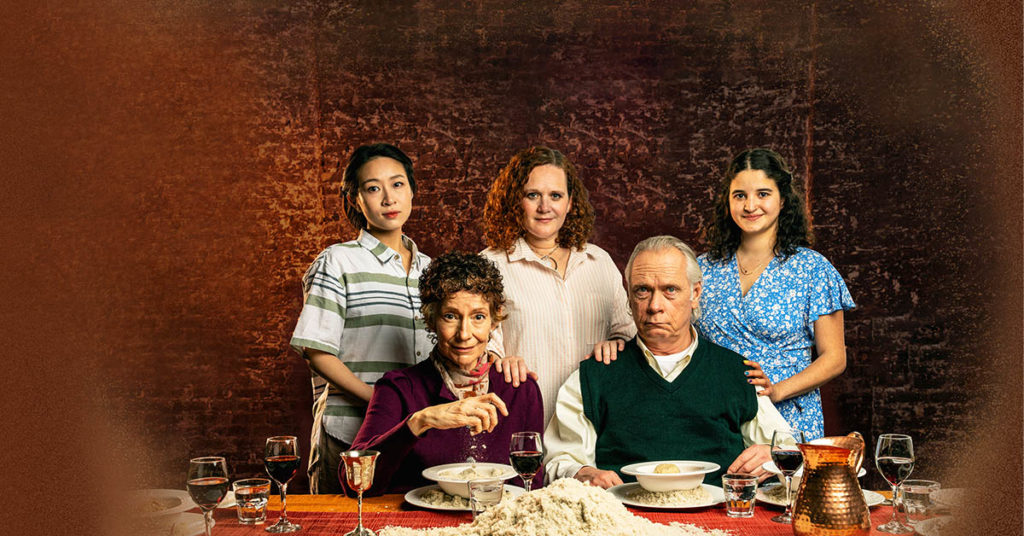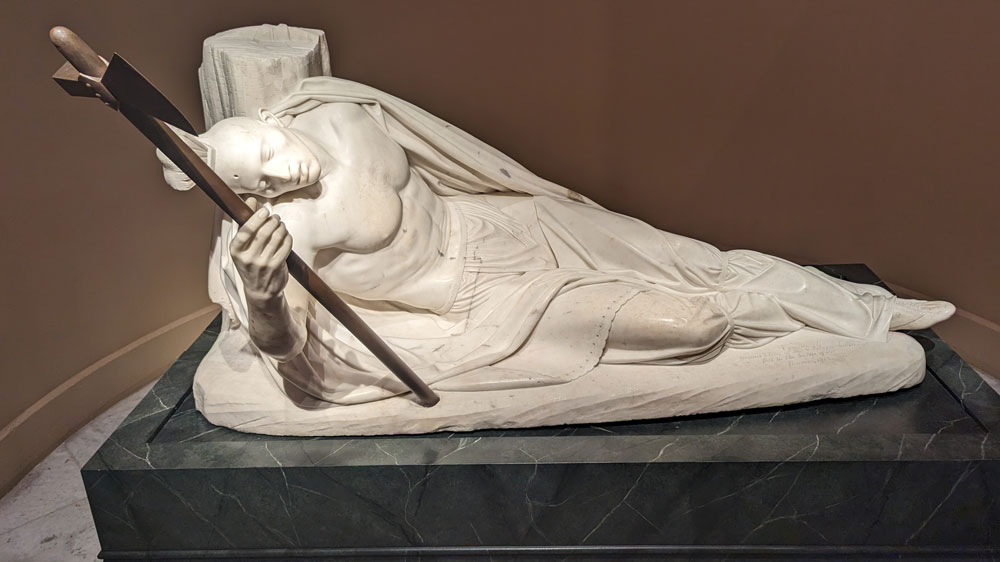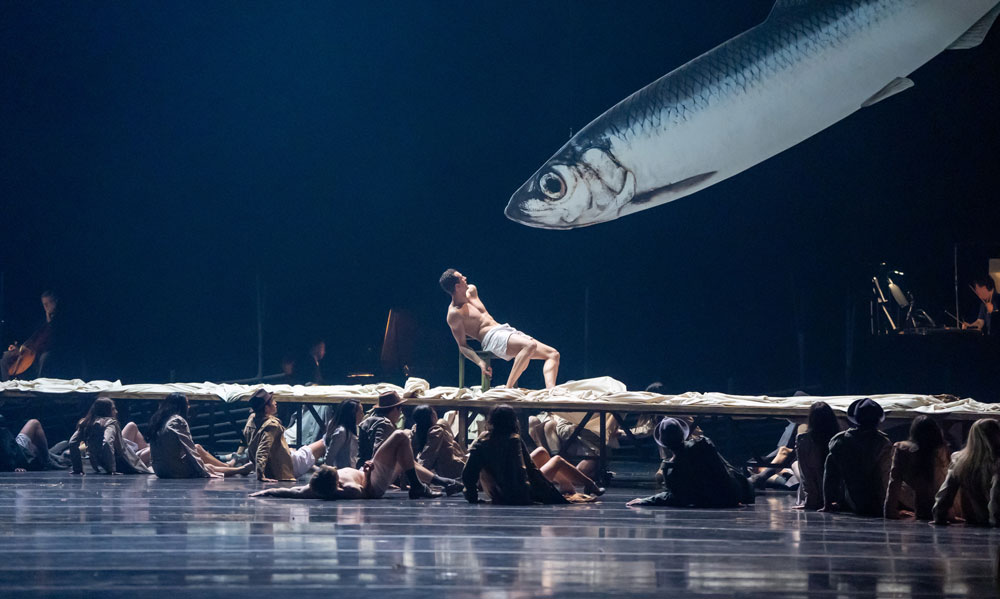
Will we ever completely grasp the power of identity? Works like In Every Generation, now playing at Victory Gardens until May 1st, at least allow us to appreciate how deeply a shared past and lineage can impact our present and define our future.
At its beginning, Ali Viterbi’s engrossing drama invites us into the home of a Jewish family as they gather around the Seder table during Passover. It has the feel of a Thanksgiving meal with a strong spiritual foundation. A ritual feast celebrating their exodus from slavery in ancient Egypt, Pesach or Passover stands as one of the major holidays in the Jewish faith. Still, as in many families across cultures and beliefs, gatherings of kin can become fraught when sensitive topics surface or sleeping tensions between individuals are stirred.
Three generations gather around this Seder table. The most senior include Davide (Paul Dillon) and Paola (Carmen Roman). Between them, they have first-hand knowledge of either German concentration camps or living in hiding in Fascist Italy. The other two generations are represented by their daughter Valeria (Eli Katz) and her children Yael (Esther Fishbein) and Devorah (Sarah Lo). The family has enough of the trappings of middle class success to qualify them as privileged. Valeria’s divorced and a university professor. Her college age daughters are discovering themselves. One in college. The other, Devorah, still probing in her early 20’s.
The five people gathered in celebration are a loving family and one that can quickly find itself in the throes of intellectual and ideological combat in spite of their closeness. As is true in countless families, secrets and resentments only serve to exacerbate festering sensitivities. The lingering pain of a divorce and the mark of adoption also filter in to color the tone and affect how these characters relate to one another. Most of them are women. It isn’t clear how much of their analysis of themselves and each other is determined by gender. But their incisiveness and the clarity of their perceptions are noticeable. Even though the way they frame their thoughts bear the ring of a university classroom, there’s considerable relatability in the points they make. Brusque and often drolly comical, it’s Paola who can break it all down in human terms. With her, important questions get reduced to their essential elements. How important is religion or religious faith? What does it mean to be a Jew? What is the importance of never forgetting the past and understanding that what happened once can happen again?

Devorah or Dev’s position is consequential because she may be the most devoted Jew at the table despite the pureness of her Chinese ancestry. Her embrace of the culture that raised her is so complete she’s considering enrolling in rabbinical school. Neither her sister or her mother possess her intensity of belief. There may even be some bitterness about a life devoted to spiritual leadership on her mother’s part because her ex is a rabbi.
It’s Dev’s journey that gives this story the thread of access that connects us to this family. She’s the outsider who’s been completely absorbed into the tribe. So comfortable and natural does she feel in this world that she chooses to devote her life to its precepts. In her portrayal, Lo kept propelling her character to new heights of honesty and courage as she commits to her decision of pursuing religious studies. Lo also gave Dev’s parallel decision to fully embrace her biological heritage the kind of depth and conviction that engenders admiration and respect. Through her, we see how receptivity to an identity isn’t always driven by DNA. Nurtured by proximity and driven by the uniqueness of her own psyche, she shows in her role as an Asian Jew how identity can be a choice.
In Every Generation reminds us how little we know about each other and how much we can gain from exposure to those who don’t share our stories of origin or ancestral affiliations. One of the play’s most generous gifts is to share intimate insights into Jewish life and thought. Jewishness goes beyond religion and race. The pervasive and often ruthless persecution nipping at the heels of generations of Jews over the centuries is so strong and indelible that its reality has become a part of who they are. Other races and ethnic groups understand the significance of that kind of link. Extolling the importance of solidarity and unity would be appreciated by all of them.
The first scene introducing us to the dynamics of the family and the second that looks back at the beginning of Davide’s and Paola’s lives together were enough to firmly ground the trajectory of this story. Extending the second act to encompass the family’s Biblical origins failed to add the desired context. Saturday night’s audience didn’t begrudge the overtreatment. They loved the messages running through this family drama that emphasize, despite dueling personal philosophies, unity, love and forgiveness.
In Every Generation
Through May 1, 2022
Victory Gardens Theater
2433 N. Lincoln Ave.
Chicago, IL 60614
victorygardens.org


